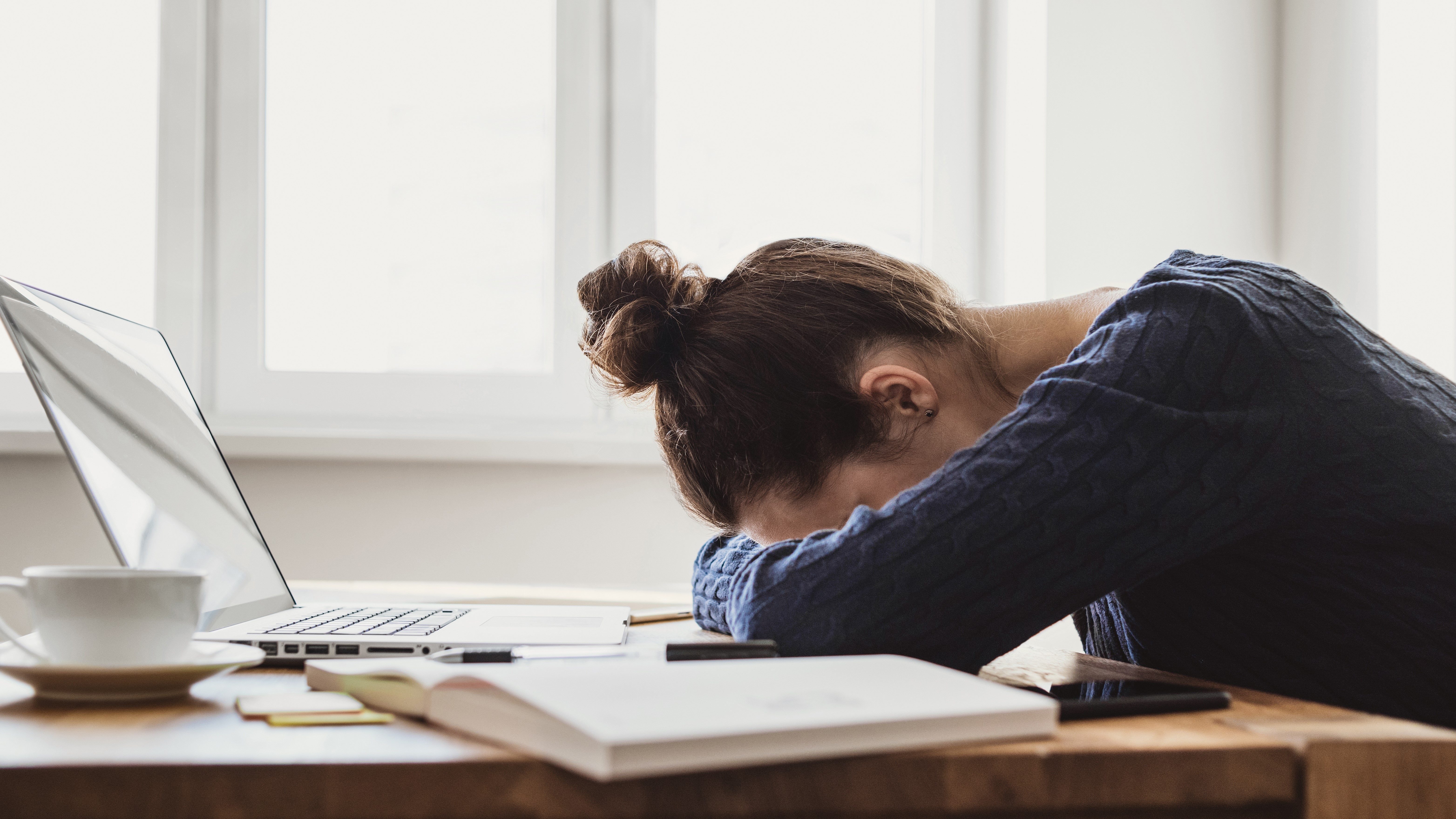5 mental health benefits of walking: From stress relief to problem solving
Whether outside or indoors, the mental health benefits of walking are manifold, from lowering stress levels to helping you solve problems.

Sign up to receive the latest news, reviews, buying guides and deals direct to your inbox
You are now subscribed
Your newsletter sign-up was successful
A daily stroll does wonders for your overall wellbeing. In fact, the mental health benefits of walking range from stress and anxiety management to clearing brain fog and boosting your ability to quickly solve problems. Walking is also linked to better sleep, a reduced risk of depression, and higher levels of happiness and self-esteem.
While jumping on one of the best treadmills can help you enjoy some of these perks, the most effective way to harness the mental health benefits of walking is by heading outdoors. Doctors are even prescribing time in nature, in conjunction with medication and other lifestyle changes, for some patients dealing with conditions including anxiety and depression.
It doesn’t have to be a long walk either. As we explain below, a ten-minute daily stroll is often as effective at relieving anxiety as a 45-minute cardio workout. You could even fire up a meditation app to experience a walking meditation.
The mental health benefits of walking
We each experience things in different ways, so while not all of us will feel each single benefit listed below, these are the most common, science-backed mental health benefits of walking:
- Walking helps reduce cortisol, which in turn lowers your stress levels
- Physically active people have up to a 30% less risk of depression
- Walking fires up your problem solving capabilities
- Daily walks also help boost your creativity
- Longer walks can help you sleep better as you’re more tired at night
- Walking at a moderate pace for one hour, twice a week, is enough to reduce brain fog
- 20 minutes of walking releases endorphins that make you feel happier
We recently spoke to Stephen Buckley, Head of Information for the mental health charity MIND, about the link between walking and better mental health. This is what he said: “We all have mental health to look after as well as physical health, and the way we live our lives has a direct influence on them both. One in four of us will experience a mental health problem every year.
"There are lots of small things we can change to improve or maintain good mental health and wellbeing without spending lots of money to do it.”
If you are experiencing a mental health issue, speak to your doctor as soon as you can, as it’s far easier to treat a condition that’s in its early stages. “If the way you’re thinking or feeling is having an impact on your life or stopping you from doing things you normally would do, speak to a friend or family member you trust or go to your doctor, who can talk you through the support that’s available,” advises Buckley.
Sign up to receive the latest news, reviews, buying guides and deals direct to your inbox
Why is walking good for you?
The link between exercise and physical health is well-established, yet less is known about the relationship between walking and mental health. That’s surprising, given how a small number of research studies clearly demonstrate how walking benefits our mental health in a multitude of ways.
Walking for Health, an organization aimed at helping people to live a more active life, explains that while walking certainly improves your physical health, the benefits don’t stop there: “A good walk can do wonders for your mental wellbeing. Walking improves self-perception and self-esteem, mood and sleep quality, and it reduces stress and anxiety.”
It’s a view shared by Stephen Buckley of MIND: “Our physical health and mental health are closely linked, and physical activity like walking can be very beneficial for our mental health and wellbeing too.”
Whether you’re wearing a suit or active wear, rambling across fields or breaking a sweat in your home gym, every step you take brings you closer to better mental health. Here's how...
Walking for stress
1. Walking lowers your stress levels

We know that walking offers a range of physical benefits, but your daily walk reduces your stress levels too, as Stephen Buckley explains: “Our physical health and mental health are closely linked, and walking can be very beneficial for our mental health and wellbeing.
“Being active outdoors helps us switch off from everyday pressures, clear our heads and relieves stress by reducing levels of cortisol, ‘the stress hormone’, which has been linked to a range of mental health problems including depression and anxiety.”
If that’s not enough of a reason to lace up your sneakers, consider the findings of a study published in the Journal of Sports Medicine, which showed that walking through green spaces can put the brain into a meditative state.
Walking for anxiety
2. Walking helps to reduce anxiety

While anxiety releases hormones that can wreak havoc on your mental health, the Anxiety and Depression Association of America reassures us that exercise releases feel-good hormones. For some people, ‘One vigorous exercise session can help alleviate anxiety symptoms for hours, and a regular schedule may significantly reduce them over time.’ If you need a hand getting more active, read our guide to the best fitness trackers, and our round-up fo the best Amazon Prime Day Fitbit deals.
Psychologists have found that even a ten-minute walk is as good at relieving anxiety as a 45-minute workout, thanks to walking’s ability to lower stress, a common trigger for anxiety according to advice published by Mental Health First Aid USA. Health expert and author Sarah Wilson attributes walking with helping to shut off the amygdala, the primitive part of the brain that deals with anxiety.
The amygdala also controls decision making, which is why making decisions when anxious seems impossible, and why making too many decisions at once can make us feel anxious. To learn more about this, read our feature on how to manage anxiety.
Walking for depression

3. Walking eases depression in some people
According to research shared by the Blue Cross Blue Shield Health Index, major depression affects over 9 million commercially insured Americans, and diagnoses have risen by 33% since 2013. The National Institute of Mental Health states that 17.3 million Americans have had at least one depressive episode, but the real number is likely to be far higher.
While you may not have the luxury of being able to trade your desk job for one that sees you working outside more often, a 2019 Harvard Medical School study concluded that replacing one hour of sitting with walking each day may be an effective strategy for preventing depression. A good standing desk can help you avoid sitting for long periods during work too.
While depression can also lead to disturbed sleep and lower energy levels, which sometimes lowers your motivation to exercise, Harvard professor Dr Michael Craig Miller suggests that as little as five minutes a day of walking can help ease it Dr Miller says that walking not only helps prevent depression, but can also act as an effective ‘treatment’ for those who are already struggling with it.
Walking for brain fog

4. Walking reduces brain fog
Brain fog, another term for mental fatigue, impairs your ability to make decisions, reduces your concentration, and hits you with a fatigue that has you raiding the cupboards at 3pm for a temporary sugar high.
Brain fog is a symptom of many different health conditions, including sleep deprivation, nutritional deficiency, depression, and other issues. Yet numerous studies have shown that people who exercise, including walkers, have greater volume in the parts of the brain that control thinking and memory.
In a study called The Influence of Exercise on Cognitive Abilities, researchers found that increased activity levels are clearly associated with sharper mental acuity, a better memory and reduced brain fog.
So exactly how much walking do you need to do to lower brain fog? Harvard researchers suggest that walking at a moderate pace for one hour, twice a week, is enough to reduce brain fog and increase your ability to problem solve.
Walking for creativity

5. Walking boosts creativity
Charles Dickens, famous for his 7-15 mile daily walks in all weathers, attributed these restorative ramblings to increasing his prolific creativity. While trying to fit a seven-mile walk into your daily routine might be pushing it, Dickens was onto something when it came to linking walking with creativity.
If you’ve ever wondered why your best ideas seem to come to you while walking, a Stanford University study has the answer. During a series of experiments, researchers found that when walking, a person generated twice as many creative responses as a person who was sitting down. That may explain why Steve Jobs, the late co-founder of Apple, was so fond of his team join him for 'walking meetings'.
These positive results aren’t limited to walking in the great outdoors, either. Marily Oppezzo, co-author of the Stanford study, said: “I thought walking outside would blow everything out of the water, but walking on a treadmill in a small, boring room still had strong results, which surprised me.”
Where to find help

Where to find mental health support
The coronavirus pandemic has taken its toll on our collective mental health. In fact, 35% of people working from home say their mental health has worsened, and many experts believe this trend is set to continue. That’s why it’s important to speak to a professional about any mental health issues you're experiencing, and to seek support from trusted family or friends. Having a good support network around you makes a big difference.
Demand for tele-therapy has spiked in America and across the globe since the start of the coronavirus outbreak. Sanvello, a UnitedHealth Group company, has announced free premium access to its digital care delivery platform for stress and anxiety management care, while mental health app Thrive, endorsed by the NHS, is now available for free to UK residents.
Some of the cost of therapy may be included in your health coverage, but if you don't have any at present, take a look at our guide to the best health insurance companies, as well as the best Medicare Part D plans for prescription drug costs.
If you’re working from home full time and are feeling the effects of it, take a look at our expert-led guide that helps you learn how to protect your mental health when working from home.
Further mental health resources to access:
- MIND
- Mental Health America
- The National Institute of Mental Health
- National Alliance on Mental Illness
- The Child Mind Institute
- Centers for Disease Control and Prevention – Mental Health
Walking for health tool kit
While it's true that, for most people with good mobility, you don't need any specialist equipment for walking, there are certain types of footwear, such as proper walking boots or walking shoes, that can make it more comfortable, and ensure your feet are well supported.
There are other items you may want to consider for your daily walk too, such as an activity tracker, to see how far you've walked, and a water bottle to stay hydrated. If you're walking indoors, you'll be looking for a good treadmill, unless of course cycling is more your kind of indoor workout. In that case, take a look at our guide to the best exercise bikes.
Here are a few items worth considering for your walk, both indoors and out...
Kathryn is a freelance health and wellness writer who is passionate about the mind-body connection, the role of food as medicine, and exploring how we can live in more sustainable and humane ways. A lover of the natural world, she’s at her happiest when walking the beach, staring out at the ocean, or when sat amongst lakes and mountains. For Top Ten Reviews, Kathryn covers more of our in-depth health content, ranging from diabetes news to vision care. And it isn’t just human wellness Kathryn is interested in - she also writes about the health of our furry friends over at our sister site PetsRadar.

